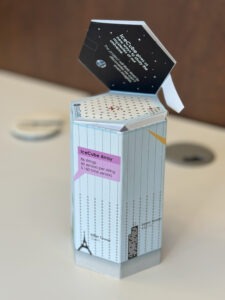The South Physics Observatory located at the University of Utah offers FREE public star parties on CLEAR Wednesday nights. These are open to all ages, interests and groups.
SPOOur main goal is to help students learn how to think like physicists. In the Physics Circle high school students to work with faculty (and each other!) in discovering what physics is all about.
Utah Physics CircleHigh School Project on Astrophysics Research with Cosmics (HiSPARC) joins high schools and academic institutions in a network to observe and measure ultra-high-energy cosmic rays with a ground-based scintillation detector. HiSPARC students and teachers participate in real research to find out more about these mysterious and rare cosmic particles.
HISPARCOutreach Resources
Public & K12
Department Groups & Programs
South Physics Observatory
The "AstronomUrs" host Wednesday night star parties & also provide K12 and outreach activities.
Email observatory@physics.utah.edu for inquiries & requests.
AstronomUrs
University students assist in weekly star parties. Presentations are also available for K-12 and public groups.
Utah Physics Circle
This is an extracurricular group of faculty and students dedicated to learning more about physics through discussion, problem solving, and demonstration.
In the Physics Circle, we will use engaging and innovative techniques to build this intuition early by inviting high school students to work with us (and each other!) in discovering what physics is all about and to lay a strong foundation for further studies in physics and astronomy.
HiSPARC cosmic ray research
The High School Project on Astrophysics Research with Cosmics (HiSPARC) is a project in which high schools and academic institutions join forces and form a network to observe and measure ultra-high-energy cosmic rays with a ground-based scintillation detector.
HiSPARC offers students and teachers the opportunity to participate in real research, with the purpose of finding out more about these mysterious and rare cosmic particles.
ICECUBE Masterclass
The IceCube masterclasses will be held at twenty research institutions in the US, Europe and Asia. We invite our young students—our future scientists—to learn about particle astrophysics by doing real research.
IceCube is an amazing experiment. It is the largest detector ever built, is taking data in the harshest place on Earth, and has observed the highest energy neutrinos ever!
Noyce Scholarship
The University of Utah is honored to offer the Robert Noyce Teacher Scholarship Program to talented undergraduates who want to become science teachers in K-12 schools. The program is funded through a generous grant from the National Science Foundation and consists of over 150 sites at colleges and universities across the nation. Noyce Scholars receive $10,000 per year for up to three years to support upper-division, licensure, and master’s level coursework.
Teach for Utah Scholarship
The Teach for Utah program is for students passionate about science and mathematics and teaching grades 6-12 in Utah. This scholarship program offers 50% tuition support for 25 STEM-focused education students.
About K-12 Education & Public Outreach
Since January of 2023, the Department of Physics & Astronomy has provided outreach with an estimated:
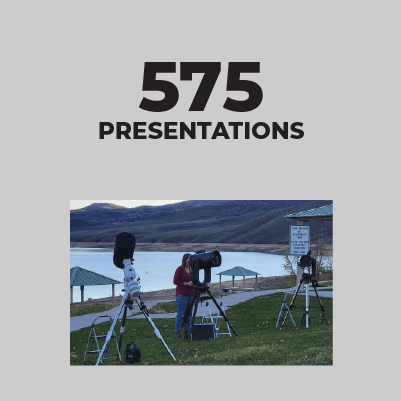
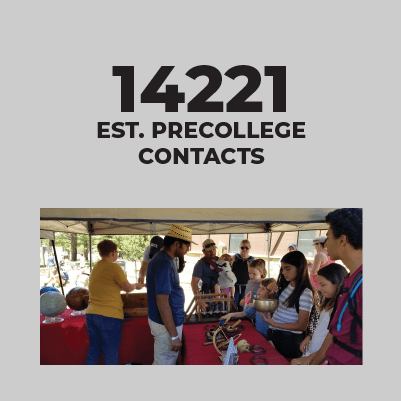
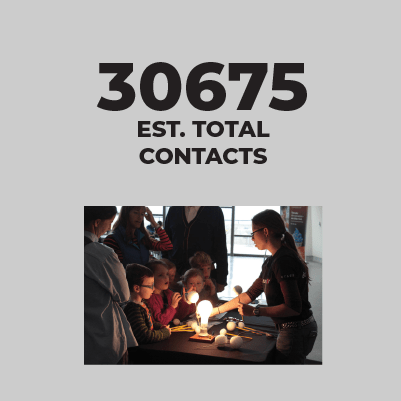
Read more about departmental outreach in this pdf document.
Connecting the U to you!
Learn more about our Education and Public Outreach activities which provides research, education and resources to our local communities, across the state and beyond.
Physics & Astronomy: for people who love to solve problems.
SUPPORT TEAM
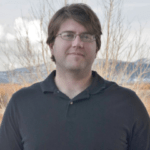
Paul Ricketts
Interpretive Specialist - SPO
Paul Ricketts manages the South Physics Observatory and the team of AstronomUrs. Star Parties are hosted each Wednesday evening. Paul and the AstronomUrs provide presentations, activities and demos. Email observatory@physics.utah.edu for arrangements.

Outreach Requests
Email PAoutreach@utah.edu to coordinate your activities or point you to resources on and off campus.

Jacklyn Maldonado
Website/Social Media
Jacklyn manages the Department website and oversees the posts on social media. Email web@physics.utah.edu for website support.
CONTACT US
Email us for questions, coordination or inquiries


